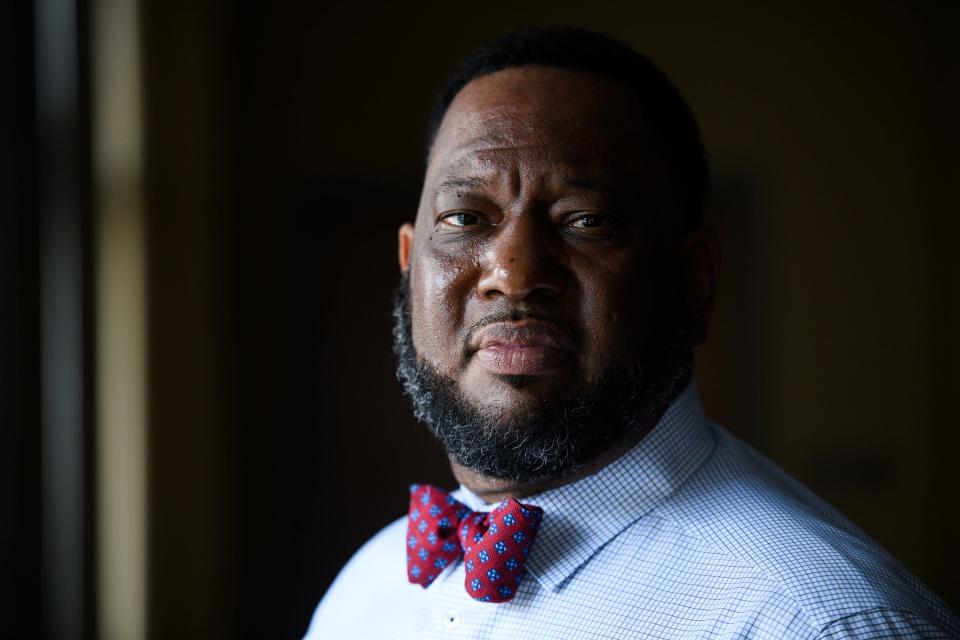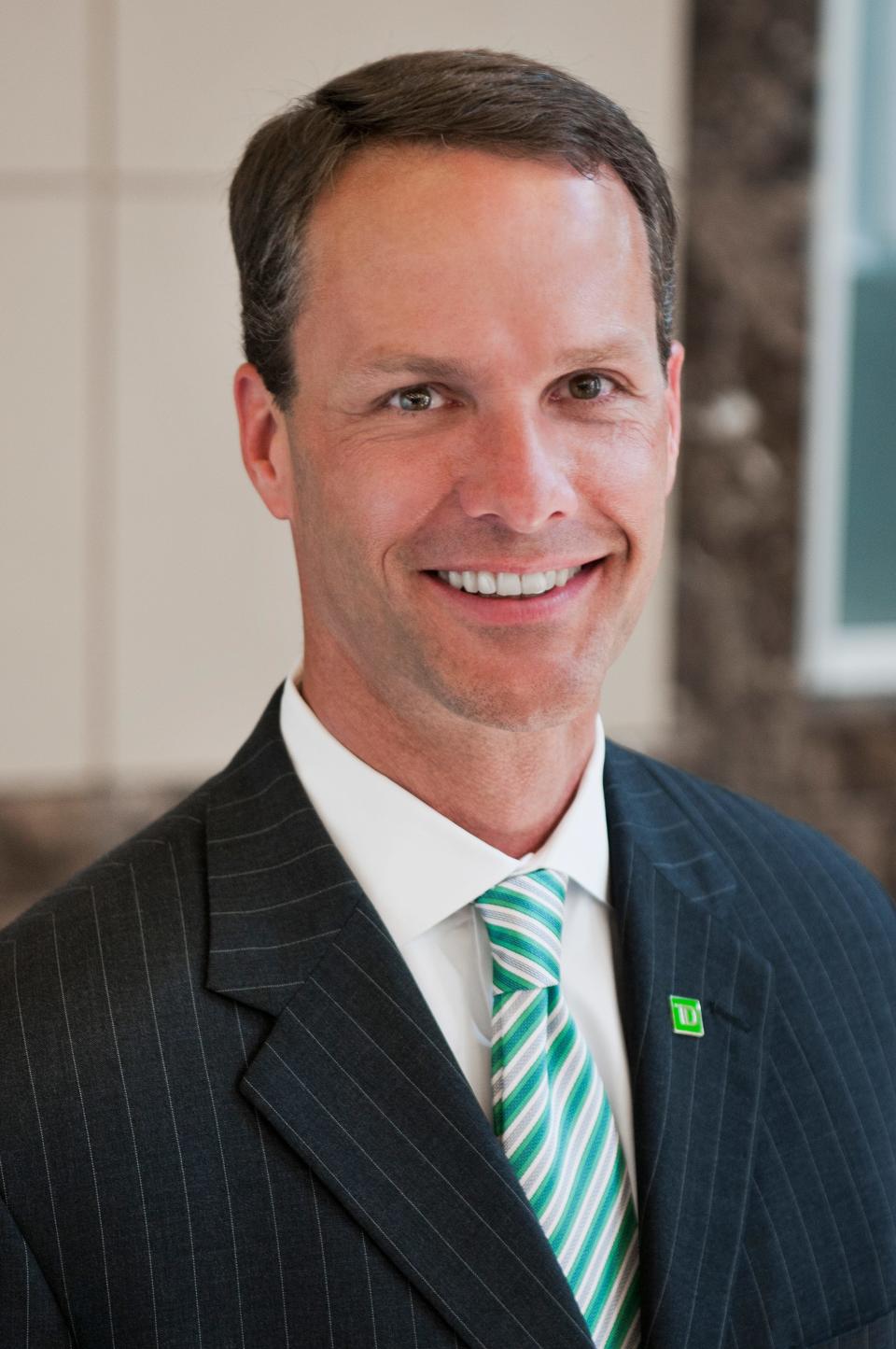How can Greenville be better for Black people -- and everyone? REEM commission has ideas
Rev. Stacey Mills has reached for three things as he's gone to walk his dog, the leash, doggie bags and his driver's license — just in case he needs to justify why he, a Black man, is walking around his predominantly white neighborhood near downtown.
'It was being dialed in to what other men were experiencing in other parts of our country that suggested to me that I needed to take care and be cautious," Mills said.
Now, he intends for his work with the Greenville Racial Equity and Economic Mobility commission to change that.

Co-chaired by TD Bank South Carolina market president David Lominack and Ogletree Deakins attorney Merl Code, REEM's goal is to bring together local leaders from various backgrounds to address racial inequities, social justice and disparities in key areas that negatively impact the Black community in Greenville County.
"There has not been somebody hired to get up every day to do this work, and I'm certainly not riding in on a stallion to say, 'We're going to solve it all,'" Mills said. "But we are making the right steps in the right direction to make a difference."
REEM commission in Greenville addresses criminal justice, education
The United Way of Greenville County, the Urban League of the Upstate and the Greenville Chamber launched REEM in 2020. The organizations came together to address "race-based gaps" locally, spurred by the national conversation on race relations that was amplified by the pandemic, according to the United Way.
Using more than 500 collective hours of research and data analysis, the commission released recommendations on June 22 for five focus areas:
Income and wealth
Criminal justice
Health and wellness
Education and workforce development
Community-wide learning
Among those recommendations was the goal to "cultivate a safe and welcoming community that promotes conversation and curiosity around the issue of racial equity" through hosting community learning events, sending leaders through the Racial Equity Institute’s training and ensuring events in Greenville County include "promotion and inclusion of Black culture."

Other recommendations included:
creating a criminal justice coordinating council to "increase public trust and mitigate the disparate impact of the criminal justice system on the Black community."
increasing access to perinatal services.
increasing access to mental health services for adults and children.
All of REEM's recommendations can be found at reemgvl.org.
Lominack said it was "eye-opening" to see data that outlined disparities and hear how others in Greenville have experienced racial inequalities.
"I grew up in Greenville, but I didn't grow up with some of the some of the life experiences and life challenges that others in our community have faced," Lominack said. "When you really start letting the data drive your decisions and your thought process, it really takes it to another level."

Black households lag white Greenville counterparts in income, data shows
The data from United Way of Greenville County's Racial Equity Index might seem staggering.
► Per-capita income for white residents in the city of Greenville is almost three times higher than Black residents.
► Per-capita income for Black county residents is just 67% that of whites — a larger gap than in the state overall.
► Female, Black and Hispanic residents have higher poverty rates than male and white residents. About 22.5% of Black children and 30.2% of Hispanic children live in areas of concentrated poverty, compared to just 4.8% of white children.
► Black males constitute a higher proportion of Greenville County Detention Center and other jail and prison inmates compared to their demographic representation, according to point-in-time data. Black males experience more than three times the expected rate of incarceration compared to their population demographic, according to detention center and census data.
The commission took that data and implemented it into conversations and recommendations for the future.
"Many communities have a history of having these great conversations, developing wonderful recommendations, presenting them to the public, but then they end up in a three-ring binder on the shelf and collect dust," Lominack said. "From day one, this commission was absolutely determined to make sure that this work continued at the completion of delivering the recommendations."
That led the United Way, the Greenville Chamber of Commerce and the Urban League to form a formal partnership to own REEM as an organization and appoint Mills as executive director in May.
Going forward, REEM will focus on building relationships locally, Mills said, including holding town halls and discussing the report with residents.
While some of these conversations have happened before, something feels different this time, Lominack said. The partnerships between the organizations that launched REEM, support from the community and the larger, national conversation around social justice and race are all contributing factors.
"It just feels like we have this momentum in this moment that we have to capitalize on," he said.
Mills said he is doing the work for his sons, Harrison and Zion, and other Greenville children who believe Greenville is a great place to live.
"For me, the challenge of being the executive director of REEM Greenville is to further that dialogue every day, to make sure that that is true for Zion and all of those guys that play on his football team at Greenville High and all of the other kids that attend other schools in this community," Mills said.
Macon Atkinson is the city watchdog reporter for The Greenville News. She's powered by long runs and strong coffee. Follow her on Twitter @maconatkinson.
This article originally appeared on Greenville News: Greenville, SC Racial equity commission releases findings

